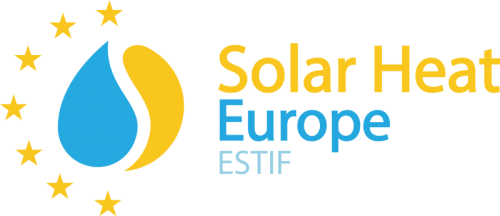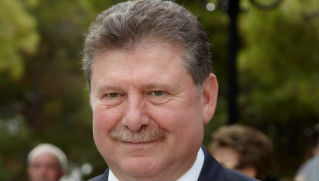Dear Members,
This is my first editorial as President of Solar Heat Europe/ESTIF. First of all, I would like to thank our members for the support and confidence in electing me for this position. I trust we can all work together as a sector, cooperating with our association in order for us all to become stronger as market players.
I would like to take this opportunity to provide you with some thoughts on the challenges and opportunities ahead of us.
The EU energy policy framework, reflected on the Clean energy for all Europeans package, presents opportunities and challenges for the solar thermal sector. Solar Heat Europe actively contributed to the final proposals related to renewable heating and cooling. Communication and coordination with our members is essential for the successful implementation of this new framework, as National energy and climate plans should (1) provide regulatory certainty, (2) encourage investments and (3) empower European consumers to become fully active players in the energy transition. Our aim is to secure that solar thermal share will be increased in each and every country.
Europe achieving global leadership in renewable energies is one of the three main goals of the package. Exports are a strong performance for this target. Our technologies and products will help other countries to increase their solar contribution. To this direction, Standardization, Solar Keymark and Global Certification should be supported by the industry. As such, EU should contribute to our efforts to overcome barriers and increase international cooperation.
Currently no-one has a clear view on the future of energy. What is clear is that every group of interests promotes its own agenda. Wild electrification will allow fossil fuels to continue in business, undermining the development of other decentralized renewable solutions, including solar heat. As a sector, we should carefully tackle negative arguments preventing the inclusion of solar thermal systems in hybrid solutions, essential for the energy transition.
Solar thermal systems are decarbonised and decentralised. They must be digitalised. This will allow us not only to provide better services to the customer and will assist the development of the industry, helping to improve the performance of systems and their interconnectivity. As such, we need to take advantage of new developments in digital and communication fields. Integration in the smart energy world (houses/communities/cities/ grids) will become vital. We should all work in this direction.
Research and Innovation potential of solar thermal is underestimated thus it’s not properly included in SET plan at European level but also in National research and innovation plans. We should try to get the maximum out of projects related to our technology, directly or indirectly.
Finally we should increase our capacity to act on specific sectors as PVT, Solar District Heating, Solar Cooling and Industrial Solar Heat by inviting specialists among our members to contribute.
These are challenging tasks, in a challenging period. The energy transition opens new opportunities thought. We can all be better prepared and achieve better results if we work together for that purpose.
We are counting also on you!


Leave a Reply